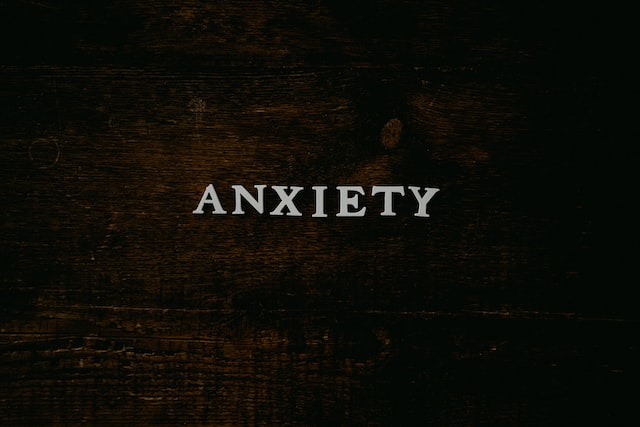Anxiety is a common mental health condition that affects millions of people worldwide. Symptoms of anxiety can range from mild to severe, and can have a significant impact on a person’s quality of life. There are various treatment options for anxiety, including medication, psychotherapy, and alternative therapies like acupuncture. In this article, we will explore the potential benefits of acupuncture for anxiety, including how it works, what to expect during a treatment, and potential side effects.
What is Acupuncture?
Acupuncture is an ancient Chinese therapy that involves the insertion of thin, sterile needles into specific points on the body. According to traditional Chinese medicine, acupuncture works by restoring the balance of energy or “qi” that flows through the body. Western medicine has a different perspective, suggesting that acupuncture may stimulate the body’s natural healing mechanisms, promoting blood flow, reducing inflammation, and releasing natural painkillers.
The practice of acupuncture has been around for thousands of years, and it has gained popularity in recent years as a complementary therapy for various health conditions, including anxiety.
Anxiety and Acupuncture
Research on acupuncture for anxiety is still limited, but early studies have shown promising results. According to a 2016 review of 51 studies, acupuncture can significantly reduce symptoms of anxiety in individuals with anxiety disorders.
Acupuncture is a holistic approach to treatment that addresses the root cause of the problem, rather than just the symptoms. This makes it an effective therapy for anxiety, which is often linked to imbalances in the body’s energy systems. Acupuncture can also improve the body’s overall function, leading to a sense of calm and relaxation.
Types of Anxiety Disorders That Acupuncture Can Help With
Acupuncture can help with various types of anxiety disorders, including:
- Generalized Anxiety Disorder (GAD)
- Panic Disorder
- Social Anxiety Disorder
- Post-Traumatic Stress Disorder (PTSD)
- Obsessive-Compulsive Disorder (OCD)
How Acupuncture Can Reduce Anxiety Symptoms
Acupuncture works by stimulating the body’s natural healing mechanisms. When the needles are inserted into specific points on the body, they can trigger the release of endorphins, which are natural painkillers that can promote a sense of calm and relaxation. Acupuncture can also reduce inflammation and improve blood flow, leading to a sense of well-being.
What to Expect During an Acupuncture Session
If you’re considering acupuncture for anxiety, it’s important to know what to expect during a treatment. Here’s what typically happens during an acupuncture session:
- Initial consultation: The acupuncturist will begin by asking you about your symptoms, medical history, and overall health.
- The acupuncture process: The acupuncturist will then insert thin, sterile needles into specific points on your body. The needles may be left in place for anywhere from a few minutes to up to an hour.
- Duration of treatment: The length and frequency of acupuncture treatments will depend on the severity of your anxiety and other factors. Some people may require weekly treatments, while others may only need treatments once a month.
Potential Risks and Side Effects
Acupuncture is generally safe, but it’s important to be aware of potential side effects. The most common side effects of acupuncture are mild and may include:
- Soreness or bruising at the site of the needle insertion.
- Temporary worsening of symptoms.
- Dizziness or fainting.
Precautions to Take Before Undergoing Acupuncture
If you’re considering acupuncture for anxiety, there are a few precautions you should take:
- Find a Qualified Acupuncturist: It’s important to find a qualified and licensed acupuncturist to perform your treatment. Check their credentials and read reviews from previous patients.
- Inform Your Doctor: Before undergoing acupuncture, inform your doctor and ensure that it’s safe for you to do so. This is especially important if you’re pregnant, have a bleeding disorder, or are taking medication.
- Discuss Any Concerns: If you have any concerns or questions about acupuncture, discuss them with your acupuncturist before starting the treatment. They can help you understand the process and ease any worries you may have.
Final Thoughts
Acupuncture can be an effective therapy for reducing symptoms of anxiety. While more research is needed to fully understand its potential benefits, early studies have shown promising results. If you’re considering acupuncture for anxiety, talk to a licensed acupuncturist to determine if it’s a safe and effective treatment option for you.
Additional Resources
Here are a few additional resources on acupuncture and anxiety:
- Anxiety and Depression Association of America
- National Center for Complementary and Integrative Health
- World Health Organization
In Conclusion
In conclusion, acupuncture can be a safe and effective treatment option for individuals with anxiety. It can reduce symptoms, promote relaxation and overall well-being, and improve the body’s natural healing mechanisms. If you’re interested in trying acupuncture for anxiety, be sure to find a qualified and licensed acupuncturist, inform your doctor, and discuss any concerns you may have. Remember, anxiety is a treatable condition, and with the right treatment, you can lead a happier and healthier life.

Leave a comment